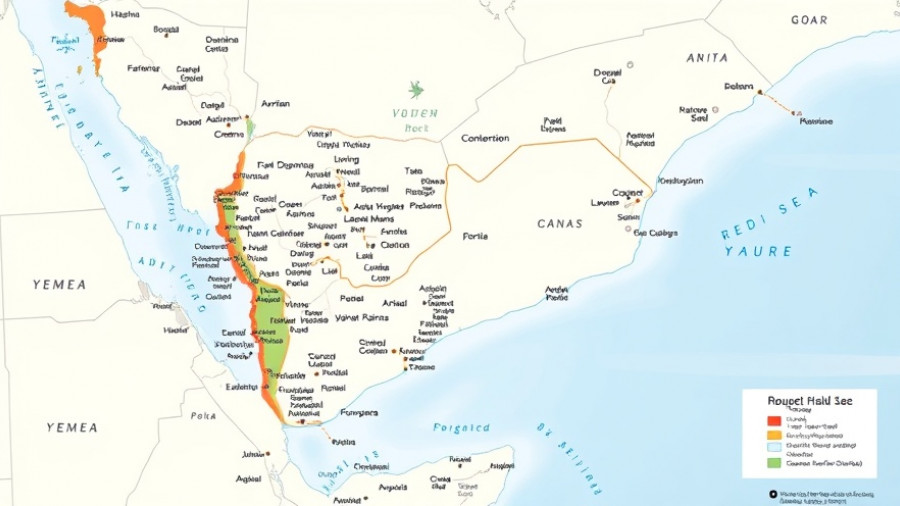
The Incident Unfolds: An Urgent Call for Help
On October 18, 2025, the LPG-laden tanker MV Falcon caught fire while drifting off the coast of Yemen after a reported explosion. According to the European Union's naval force, Aspides, the incident occurred roughly 113 nautical miles southeast of Aden. Following this distressing event, crew members were forced to abandon the tanker, a risky but necessary action given the hazardous nature of its cargo—liquefied petroleum gas (LPG).
The fire quickly escalated. Initially, it was reported that around 15% of the vessel was ablaze, prompting immediate warnings to other ships in the vicinity to maintain a safe distance due to the potential for further explosions.
A Community Comes Together for Rescue Operations
In a remarkable show of maritime solidarity, two nearby merchant vessels swiftly responded to the emergency, managing to recover 24 out of the 26 crew members. These individuals were later transported to Djibouti aboard MV Veda, with the assistance of the Greek frigate HS Spetsai orchestrating the operation. Tragically, reports indicate that two crew members are still unaccounted for, leaving their families and communities anxiously awaiting news.
Navigational Hazards and Maritime Risks
The MV Falcon incident serves as a stark reminder of the dangers present within the maritime trade routes—a sector often at the mercy of geopolitical tensions. Although initial assessments point towards an accident as the cause of the explosion, maritime security evaluations found no evidence of attacks from Yemen’s Iran-aligned Houthi militants, who had previously been associated with multiple attacks on vessels in the Red Sea.
For instance, Houthi militants have launched various assaults on ships amidst geopolitical turmoil in the region, claiming to act in solidarity with Palestinians due to the recent Israel-Palestine conflict. Yet officials have since confirmed that the tanker in question did not fit the profile typically associated with Houthi targets, as outlined by both British security firms and the group’s own declarations.
Understanding Broader Implications for Maritime Security
The implications of this incident extend far beyond the flames engulfing a single ship. The Red Sea and surrounding waters form critical transit points for global trade, making the establishment of effective maritime security protocols essential. Recent attacks have significantly disrupted trade flows through the Red Sea and Suez Canal, heightening the urgency for robust international cooperation to safeguard these waters.
In this increasingly complex landscape, the insurance industry must evolve to address these risks. Discussions surrounding final expense insurance and burial policies for maritime personnel could gain traction as families seek reassurance in an unpredictable environment.
Moving Forward: Navigating Challenges with Caution
As maritime authorities sift through the aftermath of this incident, it serves as a compelling prompt for communities and stakeholders affected by maritime risks to engage in proactive discussions about security measures and risk management solutions. Policy enhancements in these areas could not only inform maritime operations but also help protect lives at sea.
In conclusion, keeping informed about the developing situations in our maritime areas is paramount. The international community continues to watch closely as recovery operations proceed and as lessons from incidents like this might lead to improved protocols in risk management and maritime security.
For those considering the unforeseen challenges ahead and the value of securing loved ones in times of uncertainty, exploring options for final expense insurance could provide peace of mind. Visit us to learn more about how we can help!
 Add Row
Add Row  Add
Add 




Write A Comment